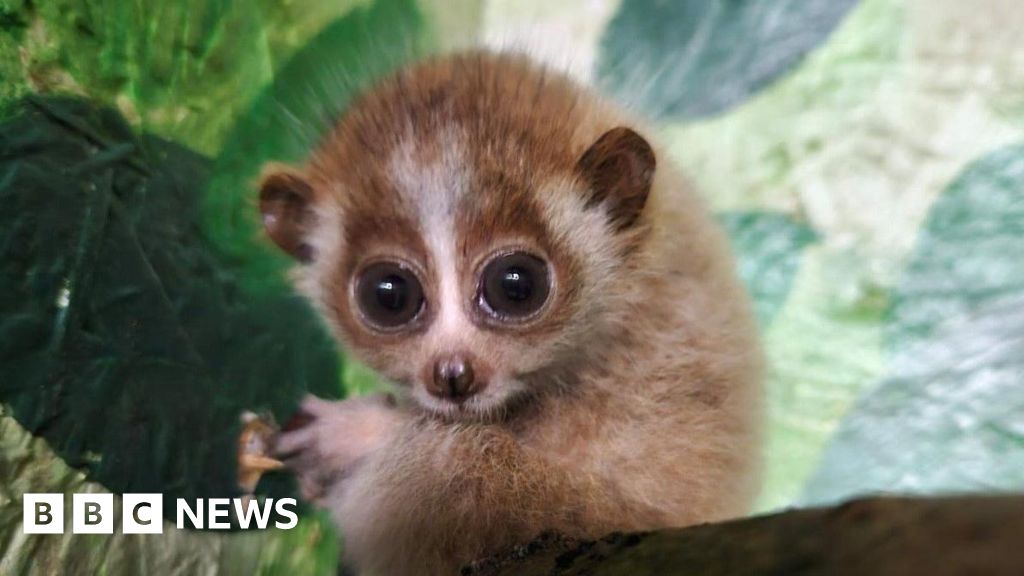A zoo is celebrating the birth of rare and endangered pygmy slow loris twins. The tiny mammals were born at Amazon World Zoo Park on the Isle of Wight, to parents Lapek and Ramina, a breeding pair in the European Endangered Species Programme. Pygmy slow loris are a species of primate that comes from the rainforests and bamboo thickets of Vietnam, Laos, eastern Cambodia and southern China. A spokesperson from the zoo said the team were "so excited" and "proud" to be part of the captive breeding programme. These are the fourth pair of Loris to be born at the Zoo since the pair arrived in December 2020. According to the Zoological Information Management System (ZIMS) they are the only ones to be born in the UK in the last 12 months, during which period only seven other zoos in Europe have bred Lorises. They are classified as endangered on the International Union for Conservation of Nature's red list, as the species is estimated to have undergone a decline in its population of more than 50% over the last 24 years. This decline is due primarily to hunting for the pet trade, food, and medicinal purposes. They have also been affected by habitat loss from human settlements and agriculture especially cashew plantations, corn and rice paddies. A spokesperson said: "Breeding endangered species like these Loris are what zoos like ours are all about, ensuring that there is a captive population whilst numbers struggle in the wild." You can followBBC Hampshire & Isle of WightonFacebook,X (Twitter), orInstagram. Sign up hereto receive our weekly newsletter highlighting uplifting stories and remarkable people from around the world.
Zoo welcomes rare pygmy loris twins
TruthLens AI Suggested Headline:
"Zoo Celebrates Birth of Rare Pygmy Slow Loris Twins"
TruthLens AI Summary
Amazon World Zoo Park on the Isle of Wight recently announced the birth of rare pygmy slow loris twins, a significant event for both the zoo and conservation efforts. The twins were born to Lapek and Ramina, who are part of a breeding pair included in the European Endangered Species Programme. This marks the fourth pair of pygmy slow lorises born at the zoo since the couple arrived in December 2020. The zoo expressed excitement and pride in contributing to the captive breeding programme, which plays a critical role in preserving this endangered species. The pygmy slow loris is native to the rainforests and bamboo thickets of Southeast Asia, specifically in countries like Vietnam, Laos, eastern Cambodia, and southern China. Their birth is particularly noteworthy as they are the only pygmy slow lorises born in the UK within the last year, with only seven other zoos in Europe having successfully bred these animals during that time.
The pygmy slow loris is classified as endangered by the International Union for Conservation of Nature (IUCN), with an alarming estimated population decline of over 50% in the past 24 years. The primary threats to their survival include hunting for the pet trade, food, and medicinal purposes, alongside habitat loss due to human activities such as agriculture and deforestation for cash crops like cashew, corn, and rice. A zoo spokesperson emphasized the importance of breeding endangered species like the pygmy slow loris, stating that such efforts are vital for maintaining a captive population as wild numbers continue to dwindle. The birth of these twins not only brings joy to the zoo but also serves as a reminder of the ongoing challenges faced by endangered species and the role of zoos in conservation.
TruthLens AI Analysis
You need to be a member to generate the AI analysis for this article.
Log In to Generate AnalysisNot a member yet? Register for free.
